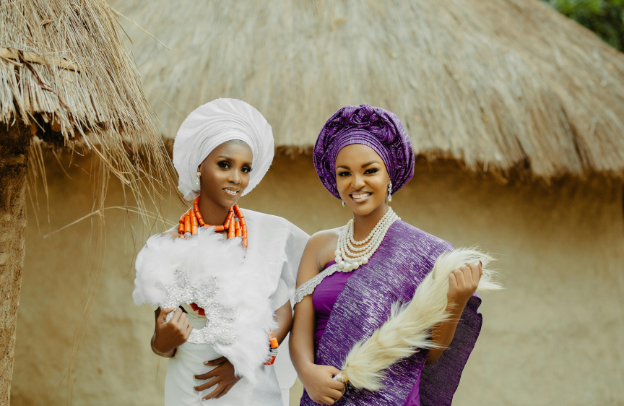Tourism as a Tool for Reconnecting African Diaspora Youth with Their Ancestral Roots

For many African diaspora youths, the act of visiting Africa is not just a vacation; it’s a journey to rediscover their roots. The impact of centuries of displacement, colonization, and the transatlantic slave trade has left deep scars on African descendants across the world. However, as more young people from African-descended communities travel back to the continent, they are engaging in something far more profound: a form of cultural healing and identity restoration.
Learn How to Leverage Your Story through our Story To Asset Framework.
Tourism, especially heritage travel, is becoming an increasingly important tool in reconnecting African diaspora youth with their ancestral heritage, promoting cultural pride, and fostering intergenerational bonds.
The Significance of Ancestral Connections
For many young people in the African diaspora, especially in North America, the Caribbean, and parts of Europe, the direct link to Africa has been severed by centuries of forced migration. This disconnection from the continent often leaves a gap in understanding and pride regarding their cultural roots.
Many diaspora youth feel lost or disconnected from their ancestry, as they lack the opportunity to learn about their origins and traditional practices in person. For these young people, travel to Africa offers a tangible means to reclaim their history, heal generational wounds, and embrace their cultural heritage.
In this context, heritage travel has evolved beyond a tourist attraction into a crucial method for reconnecting the diaspora with its ancestral roots. For African American youth, for example, visiting historical sites like Cape Coast Castle in Ghana or the Ouidah Slave Route in Benin enables them to visualize the long, painful history of their ancestors’ forced migration and to reestablish a sense of belonging in the world.
See also The Role of African Festivals in Strengthening Diaspora Connections to Africa
Ghana’s Year of Return: A Case Study in Diaspora Reconnection
One of the most prominent examples of travel as a tool for reconnecting the African diaspora with its ancestral roots is Ghana’s “Year of Return” campaign. In 2019, Ghana celebrated 400 years since the first enslaved Africans arrived in the United States with a national initiative to encourage African Americans, Afro-Caribbeans, and other members of the diaspora to visit the continent. The campaign proved wildly successful, with over a million visitors, generating more than $1.9 billion in revenue for the country.
For many African Americans, this visit was not just a trip; it was a pilgrimage. The experience of visiting Ghana’s slave forts, the National Museum of African American History and Culture in Washington, D.C., and taking part in cultural festivals helped many diaspora youth gain a deeper understanding of their African heritage.
“I came to Ghana as a tourist but left with a sense of identity that I had never known,” said one traveler to the New York Times after the trip. “It’s not just about visiting historical places; it’s about reclaiming a part of myself that I didn’t know was missing.”
Bridging Generations: A Shared Experience of Healing
Tourism to Africa has another, often overlooked benefit: it bridges generational divides. African diaspora youth who travel with their families, particularly elders, often find themselves engaged in intergenerational conversations that offer new perspectives on family history, cultural practices, and migration stories.
This shared experience creates a unique space for storytelling, where older generations pass down wisdom, personal narratives, and traditional knowledge to younger generations. For many young travelers, hearing their grandparents’ or parents’ stories while standing on the land of their ancestors can be a transformative experience.
This form of intergenerational bonding not only strengthens family ties but also ensures that knowledge is passed on in a way that transcends written records and modern media. For African diaspora youth, being physically present in ancestral lands allows them to internalize cultural practices and rituals that textbooks cannot replicate.
See also Exploring Africa Through Collaboration: The Benefits of Group Tours for Diasporans
Immersive Learning: More Than Just Sightseeing
Traditional forms of learning often fall short in fostering a deep, emotional connection to history. While classroom lessons on the transatlantic slave trade or African kingdoms are valuable, they lack the immersive experience that traveling to Africa offers.
Heritage travel provides a unique form of experiential learning that deeply resonates with visitors. When young people step into a slave dungeon, visit an ancient kingdom’s ruins, or witness a local ceremony, they are engaging all of their senses, creating lasting memories that will continue to shape their identity long after they return home.
Programs like Birthright Africa and the Mandela Washington Fellowship combine educational programs with cultural immersion, helping young diaspora members understand their heritage through hands-on experiences. These programs empower youth by grounding them in African history and culture while fostering leadership skills that they can bring back to their communities abroad.
According to UNESCO’s report on intangible cultural heritage, experiential learning is one of the most effective ways to instill cultural pride and appreciation. When young people participate in African festivals, music and dance ceremonies, or religious rituals, they learn not just about Africa but from Africa.
These cultural encounters help young people regain a sense of agency over their identities, something that may have been lost over generations of displacement.
The Healing Power of Tourism: Addressing Ancestral Trauma
Travel to Africa can also serve as a form of emotional and psychological healing. Generations of African Americans, Afro-Caribbeans, and others in the African diaspora have carried the weight of historical trauma: the violence of slavery, the trauma of colonialism, and the erasure of African identity.
Many mental health professionals, including Dr. Joy DeGruy in her work Post Traumatic Slave Syndrome, argue that acknowledging and confronting this trauma is an essential part of healing for diaspora communities. Tourism to ancestral sites is one way to begin this process.
Participating in rituals like libation ceremonies or visiting sacred sites helps individuals connect with their ancestors in a deeply spiritual way. In Ghana, for example, many visitors participate in a “return to the ancestors” ceremony, where they pour libations and offer prayers of thanks for their forebears’ survival. These experiences have a profound emotional impact, allowing diaspora youth to process historical trauma and begin their own healing journey.
Digital Connectivity: Sharing the Journey with the World
The digital age has revolutionized how young people engage with African heritage travel. Through platforms like Instagram, YouTube, and TikTok, diaspora youth can share their experiences in real time, creating global networks of individuals who are reconnecting with their African roots.
These platforms allow young travelers to share stories, exchange advice, and highlight their experiences at heritage sites. In this way, digital storytelling has become a form of collective memory-building, where shared experiences are preserved and passed on to future generations.
This digital presence also has the added benefit of dispelling myths and stereotypes about Africa. By sharing authentic, personal experiences, diaspora youth are helping reshape global perceptions of the continent, showcasing its rich diversity, culture, and history.
Challenges and Opportunities
While heritage travel offers immense potential for reconnecting diaspora youth with their African roots, there are challenges to consider. Cultural commodification, the risk of over-travel, and the potential for the exploitation of local communities are some concerns that need to be addressed.
However, when done responsibly, with input from local communities and cultural experts, heritage travel can be an effective tool for both personal transformation and community empowerment.
Organizations and governments must work to ensure that travel benefits local populations by creating sustainable travel programs, promoting local businesses, and respecting cultural practices. By doing so, heritage travel can become a powerful catalyst for cultural exchange, economic development, and social change.
Conclusion: Reclaiming Identity and Building a Better Future
As African diaspora youth continue to return to Africa, travel becomes more than just a way to visit the continent—it becomes a means of reclaiming lost histories, rediscovering cultural pride, and reconnecting with ancestors. These journeys are transformative, not only for the individual but for the communities they represent. Through travel, young people from the African diaspora can build a stronger, more united future, grounded in the rich heritage of their past.
By investing in heritage travel, African diaspora youth are not just visiting a place; they are reclaiming their identity, confronting historical trauma, and laying the foundation for a new generation of globally conscious, culturally connected leaders. The power of travel is more than the act of moving from one place to another; it is a journey of the soul, a journey that reconnects, heals, and empowers.
Learn How to Leverage Your Story through our Story To Asset Framework.





